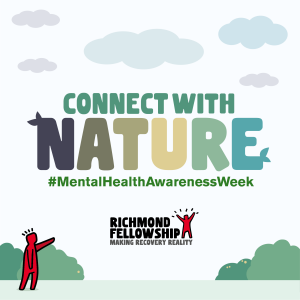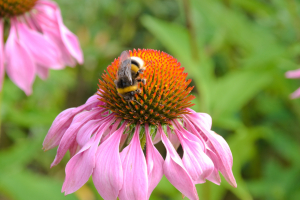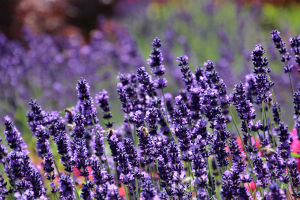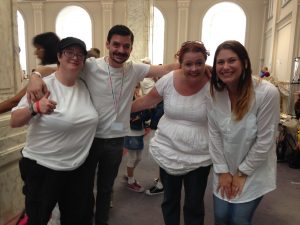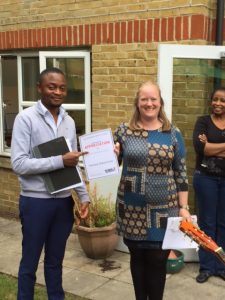Mental Health Awareness Week – The Old Moat Garden Centre
“I have found coming to the Old Moat during the pandemic has helped me so much – it is the one place that I feel at peace. I can focus on taking care of the plants, learn about them and be with people who are just so kind, supportive and accept me for who I am whether I’m having a good or bad day. I am truly grateful for that.” Person we support.
How much do you know about Richmond Fellowship? You might well know that we’re a national mental health charity. Or that we’ve been going for over 60 years. But did you know that one of our services supporting people’s mental health is … a garden centre?
If you didn’t then we can think of no better time to tell you all about it. Because this week it’s Mental Health Awareness Week and the theme this year is nature.
But our Old Moat Garden Centre and Café in Epsom isn’t simply about selling people plants to brighten up their mood and home. It’s actually a social enterprise designed to help people living with mental ill health (re-)gain important life skills.
At any one time the Old Moat is supporting around 50 people living with mental ill health. The support is rigorous and wide ranging. They provide the people who use the service with a safe and secure experience of working in a commercial environment, and help them to identify what support may be needed to help them meet their future plans and aspirations.
Not only that but with the help of local organisations like the Workers’ Educational Association they provide courses in subjects like, stress management, confidence building, customer service and creative arts.
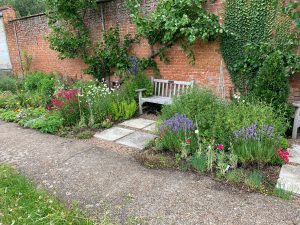 It’s not surprising that the service has won a number of awards – most recently the Good Retail Awards “Community Award” for the second year running! And this Mental Health Awareness Week we wanted to particularly appreciate the work that they do – not just this week, but all year through to support people’s mental health. As they say themselves – “Helping plants AND people grow”.
It’s not surprising that the service has won a number of awards – most recently the Good Retail Awards “Community Award” for the second year running! And this Mental Health Awareness Week we wanted to particularly appreciate the work that they do – not just this week, but all year through to support people’s mental health. As they say themselves – “Helping plants AND people grow”.
We asked people we support at the Old Moat to tell us in their own words how nature has helped them this past year and we leave you with these quotes and striking examples of the Japanese haiku.
“Probably for me it’s being able to go out with Tilly (my dog) and just detox from all the noise in the world and the stress. Just to even go out into my garden and sit with no distractions or worries and just listen to the birds and the wind in the trees and feel as if even though the world may be in panic for now I don’t have to be.”
“I have had two plants for over a year and I look forward to watering them. The outside plant is in full bloom purple colours. And the inside plant is really green but small reddish flowers are starting to come out of the plant. I’ve enjoyed watering them even though I have no idea how many times a week I’m meant to water them. I think it was Jane that told me that if they look sad water them. Thanks for the advice it’s paying off!”
Haiku by person we support
little butterfly
sits on my finger and blinks
to show me heaven
a dot in the sky
sends such beautiful music
Pom Pom Dahlia
so precisely engineered
there must be a God!
two mute swans lift off
each wing clipping the river
to show me rhythm
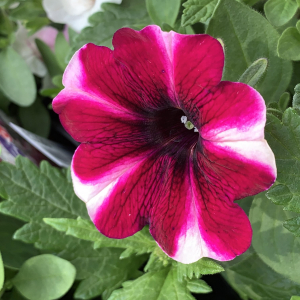
the Ursa Major
looks like a huge question mark
in the midnight sky
miniscule midges
manically hovering
invite me to dance
the Earth is at work
take time to ponder
a slug slowly slides
along the moonlit garden
and shows me the time
a murder of crows
congregate on a steeple
spelling out gothic
the feverish flies
find the carrion flower
pulchritudinous
the defeated moth
attracted into the flame
teaches me hindsight
flashing fire-flies
on a night to remember
tell me to shine bright!





